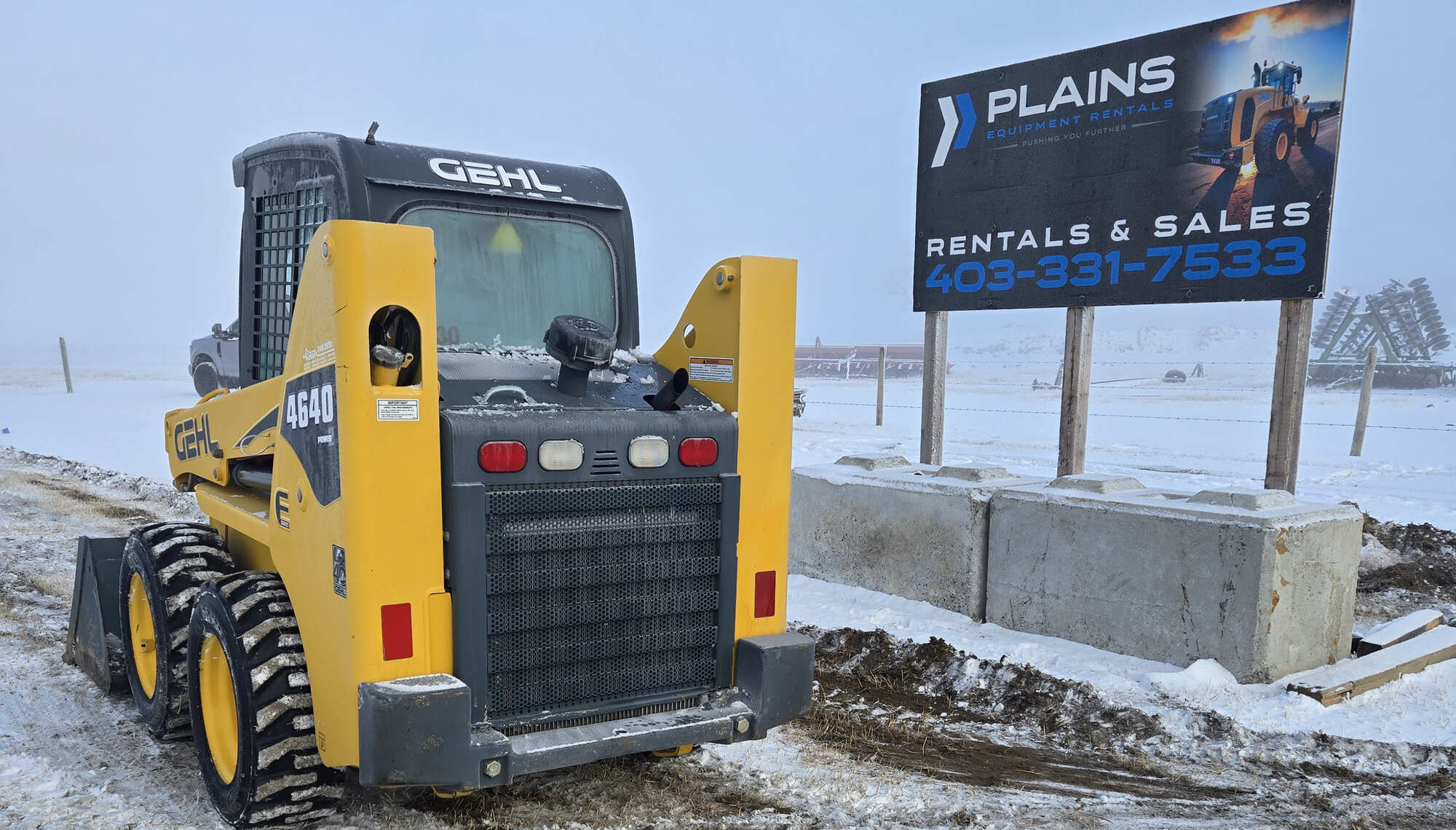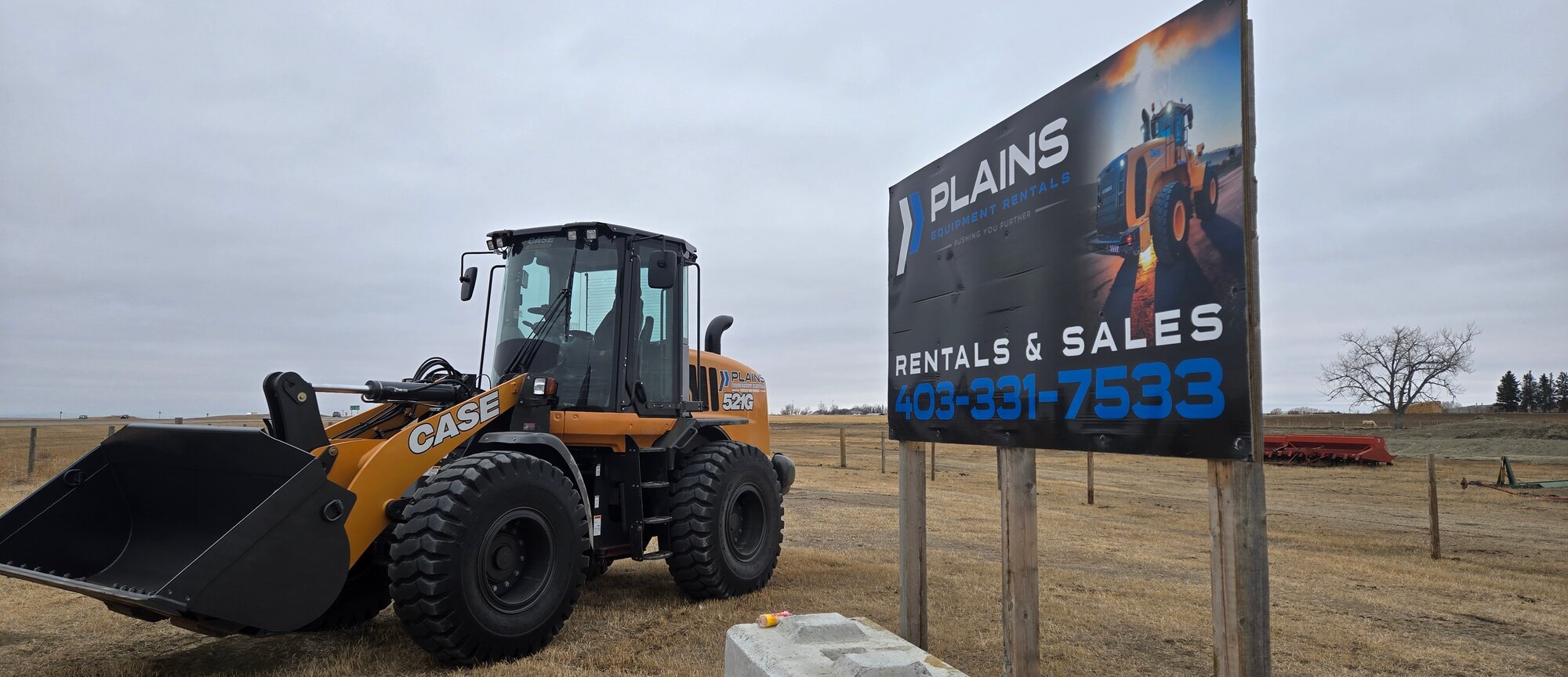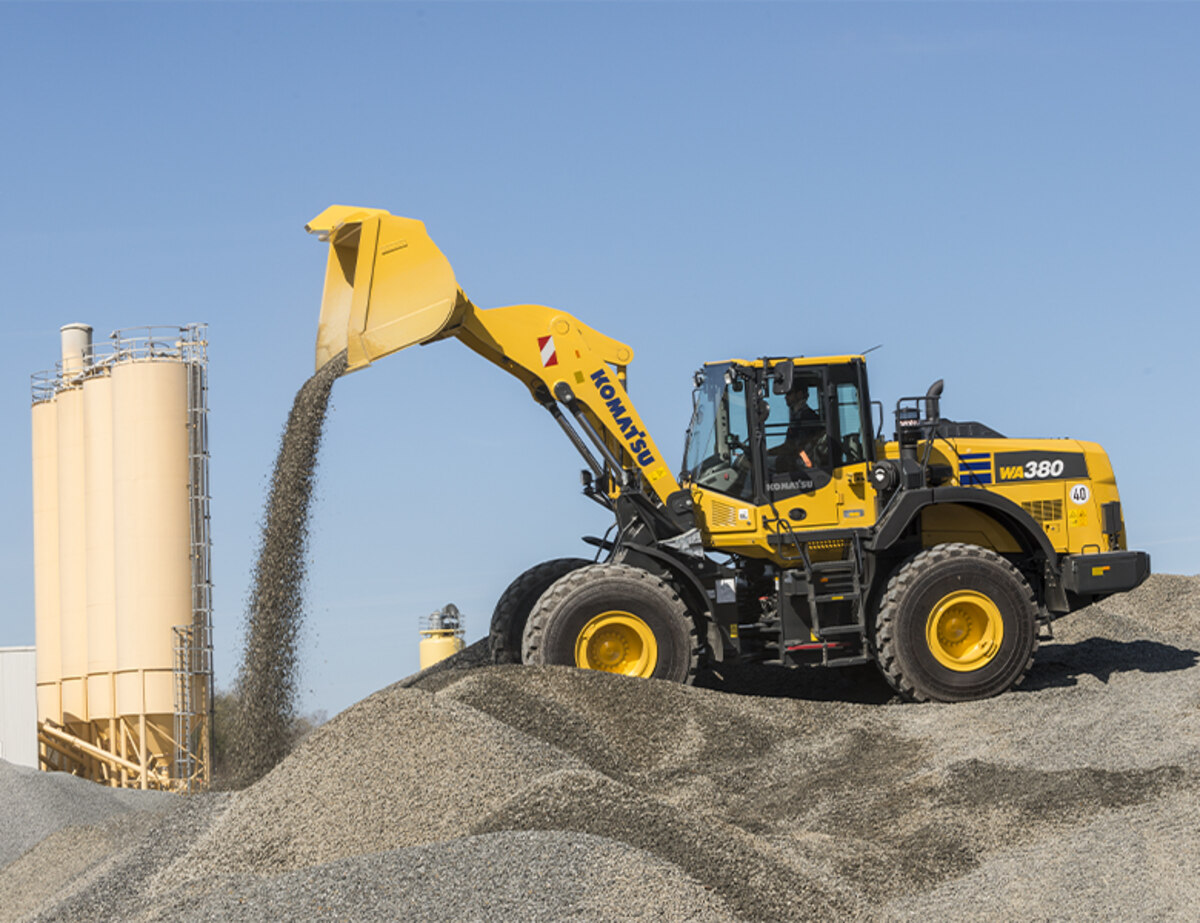When it comes to renting heavy equipment, asking the right questions can mean the difference between a smooth, profitable project and costly headaches down the road. In Western Canada’s competitive market, finding a reliable rental provider who aligns with your project goals is essential.
Here, we’ll cover crucial questions you should ask your heavy equipment rental provider upfront, ensuring you secure the best possible equipment, pricing, and terms—helping you avoid unexpected surprises and maximize your project’s efficiency.
Table of Contents
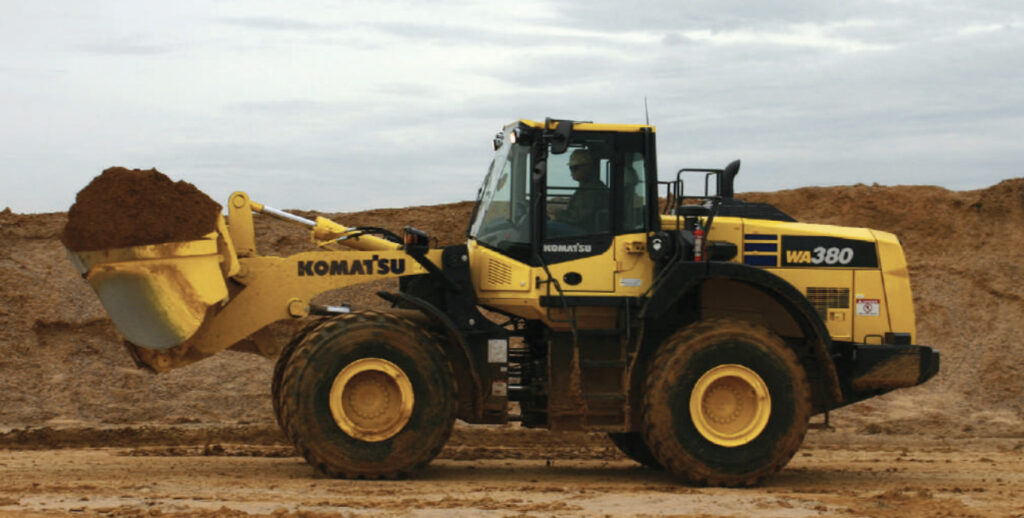
What Are Your Rental Rates and What Do They Include?
Before signing a rental agreement, it’s essential to understand how the pricing works — because not all rental rates are created equal. Some companies charge flat daily, weekly, or monthly rates, regardless of how much the equipment is actually used. Others, like Plains Equipment Rentals, offer customized, usage-based pricing that aligns with your project’s actual demands. That means you only pay for what you use — not for downtime.
Be sure to ask what’s included in the quoted rate. Does it cover general maintenance, wear and tear, refuelling, or insurance? Are there environmental or cleaning fees tacked on later? Understanding exactly what you’re paying for helps avoid sticker shock and ensures the rate fits within your budget.
At Plains, our rates are built with transparency in mind — no hidden fees or surprise charges. Whether you’re renting for a few days or a few months, we work to tailor the pricing to your site’s needs and the machine’s actual hours in operation.
Are There Any Additional or Hidden Fees?
It’s one thing to get a rental quote—it’s another thing to know what that quote really means. Many contractors run into unexpected costs because they didn’t ask about hidden or additional fees upfront. These can include:
- Refuelling charges if equipment isn’t returned with a full tank
- Cleaning fees for excessive dirt or debris
- Overtime charges for using equipment beyond agreed hours
- Late return penalties if the machine isn’t back on time
These added costs can quickly turn a great deal into a budget buster.
That’s why it’s crucial to ask your rental provider to break down all potential charges before you sign the agreement. At Plains Equipment Rentals, we prioritize clear, upfront communication. Our team walks you through the entire rental process, including any situations where additional fees might apply—so you’re never left guessing.
Being informed means you can plan better, avoid overages, and keep your project running smoothly and on budget.
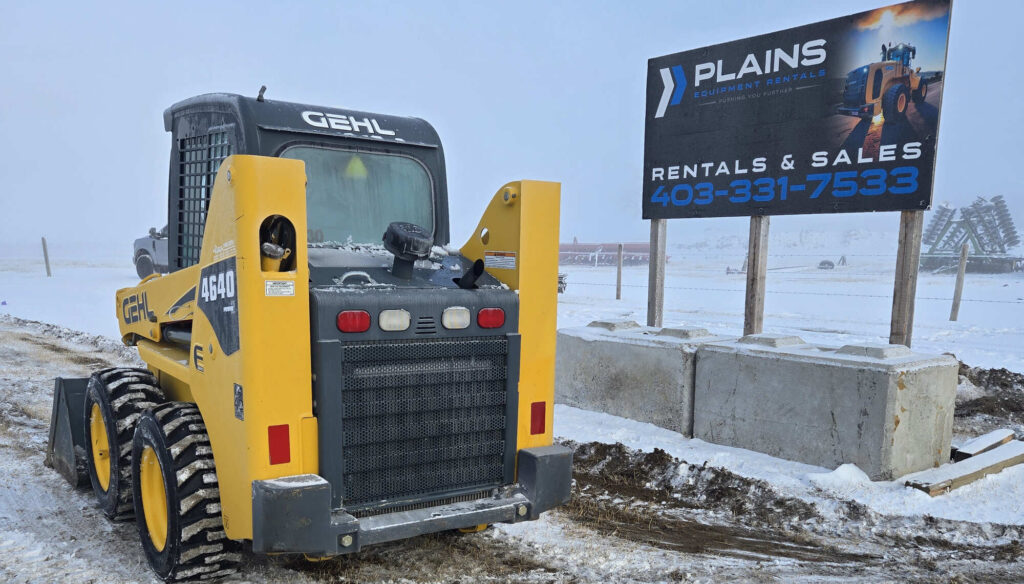
Is the Equipment Insured and What Does That Cover?
Before you sign any rental agreement, it’s important to understand what kind of insurance coverage is in place—and who is responsible if something goes wrong.
Who is liable for damage?
In most cases, the renter (you) is responsible for any damage to the equipment while it’s in your possession. That includes accidental damage, misuse, or failure to secure the equipment properly. Clarify this upfront with the rental provider to avoid unexpected charges.
What’s covered in the rental protection plan, if any?
Some rental companies offer a rental protection plan that can reduce your financial liability in the case of theft, vandalism, or damage—often for a small fee added to your rental. Ask what the plan includes and whether it covers full replacement or just repairs.
Does your business insurance cover rentals?
Many contractors carry commercial insurance that may already include rented equipment coverage. Before paying for additional protection, check with your insurance provider to see if you’re already covered—and what the limits are.
What Is the Condition and Maintenance History of the Equipment?
The last thing you want on a job site is unexpected downtime from unreliable machinery. That’s why it’s essential to ask about the condition and maintenance history of any equipment you rent.
Ask for Service Logs or Inspection Reports
A reputable rental provider should be able to share recent service records or inspection reports. These documents show how frequently the machine is maintained and whether it’s had any recent issues. If they hesitate to provide this info, consider it a red flag.
Why Maintenance Matters
Well-maintained equipment doesn’t just last longer—it also performs better. Regular servicing means stronger performance, fewer mechanical surprises, and less project disruption. When every hour counts, reliable equipment helps keep you on schedule and on budget.
Visual Inspections and Demonstrations
If possible, request to see the machine in person or ask for a video walk around. This can give you a better sense of its condition—look for things like worn tires, hydraulic leaks, rust, or cab damage.
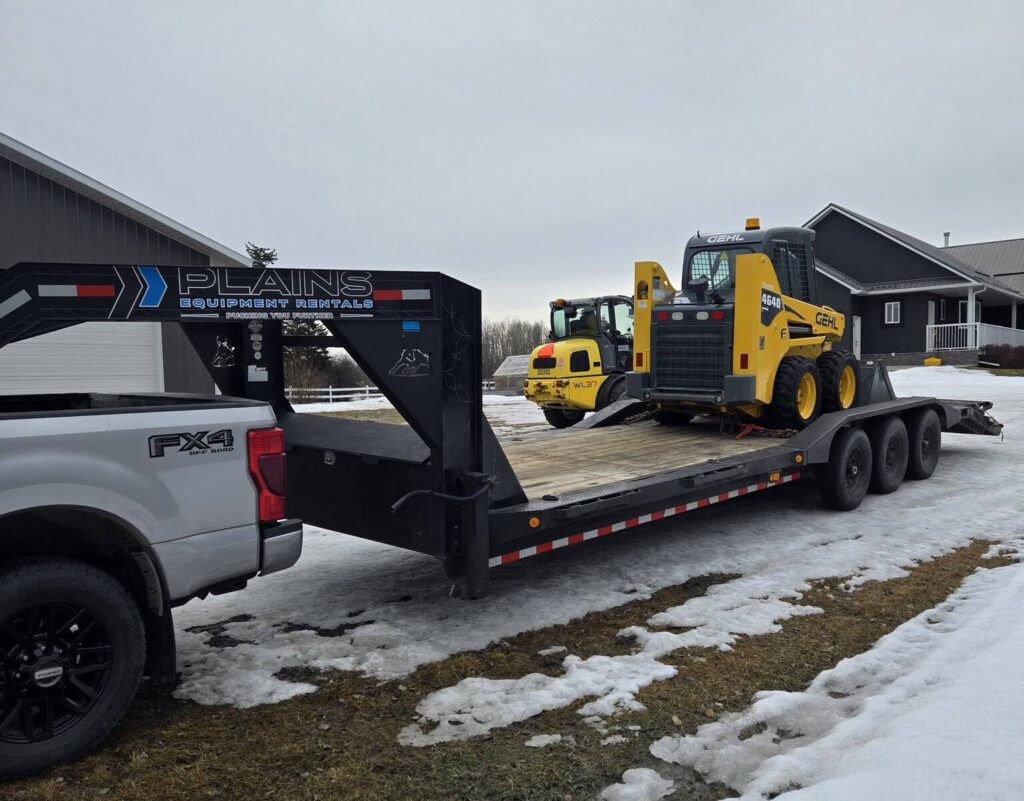
Who Handles Delivery and Pick-Up?
Coordinating transport logistics is a critical—but often overlooked—part of renting heavy equipment. Make sure you’re crystal clear on who is responsible for getting the equipment to and from your job site.
Ask Upfront: Is Transport Included?
Some rental companies include delivery and pick-up in their pricing, while others charge separately. Knowing what’s included helps you avoid surprise costs on your final invoice.
Timing Is Everything
If you’re working on a tight schedule, be sure to ask how much notice is required for arranging delivery. This is especially important for rural or remote projects throughout Western Canada, where transport can take longer or require specialized hauling.
Pro Tip: Choose a rental provider who offers flexible scheduling and real-time updates on transport. It could save you hours—or even days—on your timeline.
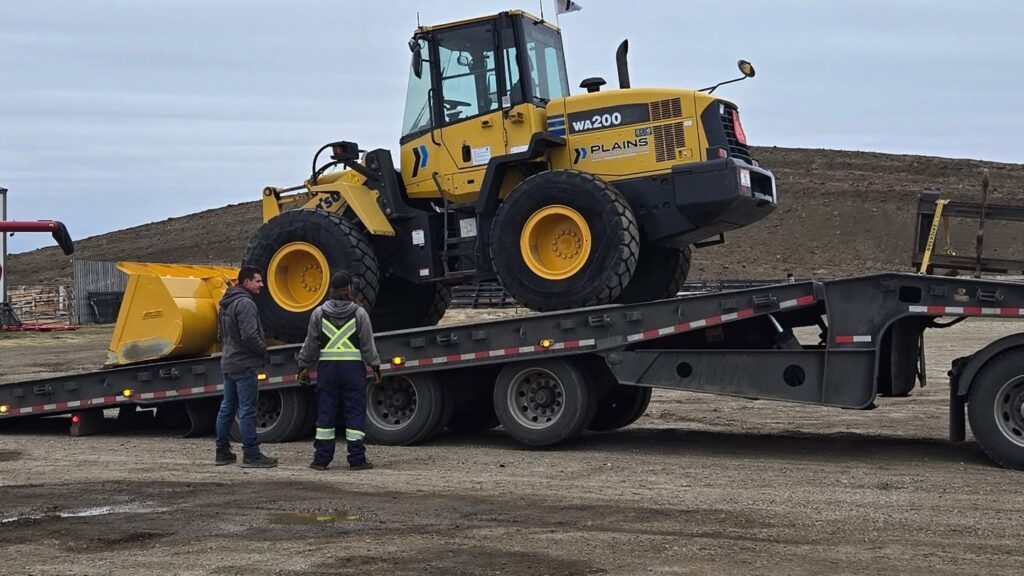
What’s the Billing and Payment Policy?
Before signing any rental agreement, it’s essential to understand how and when you’ll be billed—because misaligned expectations around payment terms can quickly lead to friction.
Ask About Payment Terms
Do they operate on Net 30? Require upfront deposits? Accept credit cards or e-transfers? Each company may have slightly different expectations, so clarify how and when payment is due.
Upfront Fees vs. Ongoing Charges
Some providers charge for the full rental upfront, while others bill periodically or based on usage. Make sure you understand whether the price quoted includes additional fees like fuel, damage waivers, or environmental charges.
Long-Term Rental Discounts
If you’re looking at multi-month rentals or seasonal work, ask if discounts apply. Many rental companies (like Plains Equipment Rentals) offer reduced rates for long-term commitments—this could significantly reduce your costs over time.
Pro Tip: Get everything in writing—especially if you’ve negotiated custom terms or discounts.
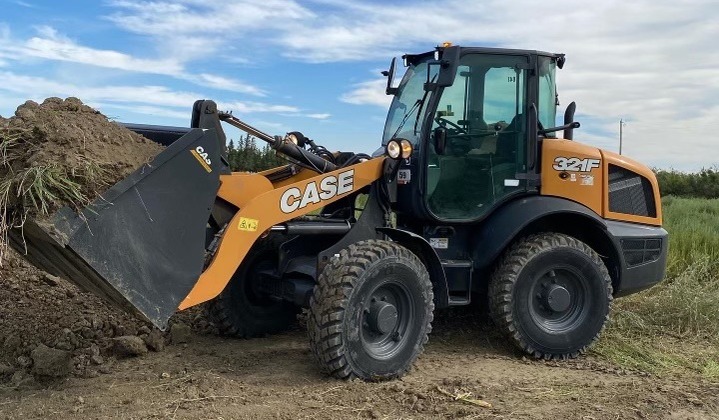
What’s Your Return Policy and Late Return Process?
When renting heavy equipment, knowing the rules for returning it—early, on time, or late—can make a big difference to your project timeline and budget.
Understand Grace Periods
Some rental providers allow a short grace period for returns, while others begin charging as soon as the scheduled time ends. Clarify whether there’s any flexibility and how late returns are handled.
Are Weekends or Holidays Charged?
Depending on the provider, weekends and statutory holidays might count as billable days—even if you’re not using the machine. Ask how they structure their calendar billing so you can schedule smarter and avoid unnecessary charges.
Returning Equipment Early? Ask About Refunds
Planning ahead is great, but sometimes jobs finish sooner than expected. In these cases, some companies may offer partial refunds or re-calculate charges based on usage. Others may charge the full rate regardless. Don’t assume—ask upfront.
What Happens if the Equipment Breaks Down On-Site?
Downtime can be one of the most expensive and frustrating parts of any job. That’s why it’s important to ask upfront what kind of support you’ll receive if equipment fails during your rental period.
Is There a Dedicated Service Contact?
Some rental companies provide a generic service line or make you jump through hoops to get support. Others, like Plains Equipment Rentals, assign a dedicated representative so you always know exactly who to call—no chatbots, no multiple departments, just fast answers.
How Fast is the Replacement or Service Turnaround?
Ask how long it typically takes to get someone out for repairs or a replacement. Delays of even one day can throw off an entire project schedule. Ideally, your rental provider should offer same-day or next-day service options and have backup equipment on standby.
Is There On-Site Service Support?
On-site service means you don’t have to haul the equipment back for repairs. If your provider offers mobile technicians who can diagnose and fix the issue right where the machine is located, you’ll save valuable time and money.
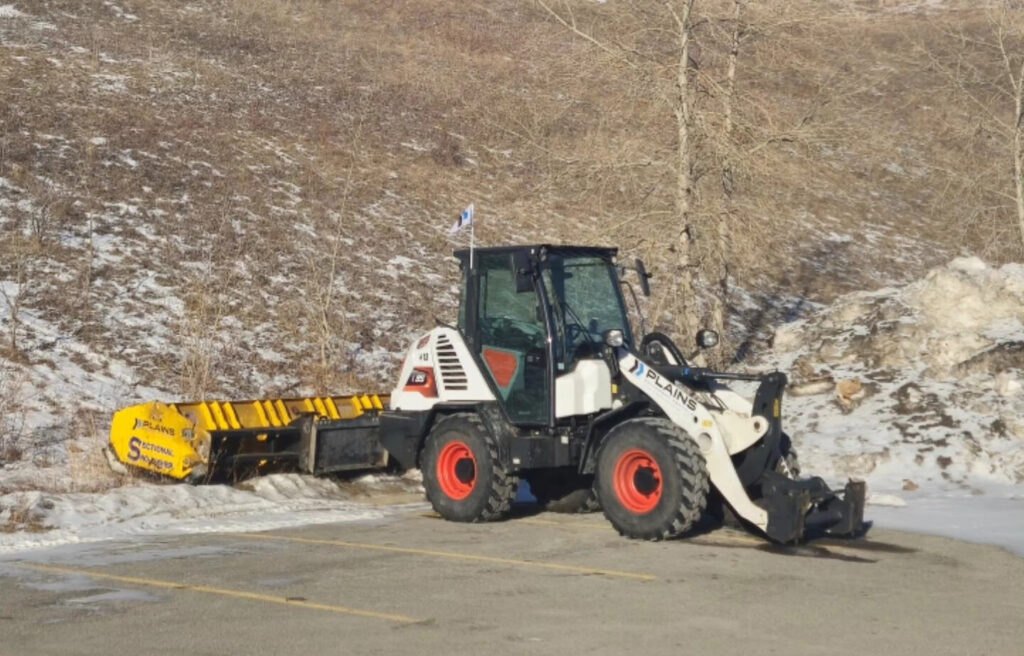
Don’t Rent Equipment Blind—Ask the Right Questions
Renting heavy equipment is a major investment in the success of your project. Taking the time to ask key questions—about pricing, maintenance, service response, and return policies—can protect your budget, reduce delays, and help you choose a rental partner that puts your needs first.
At Plains Equipment Rentals, we’re committed to transparency, flexibility, and personal service. Whether you’re renting for a day or a year, we’re here to make the process smooth, cost-effective, and reliable.
Have questions about your next rental in Western Canada? Reach out for a custom quote or speak with a dedicated team member today.


